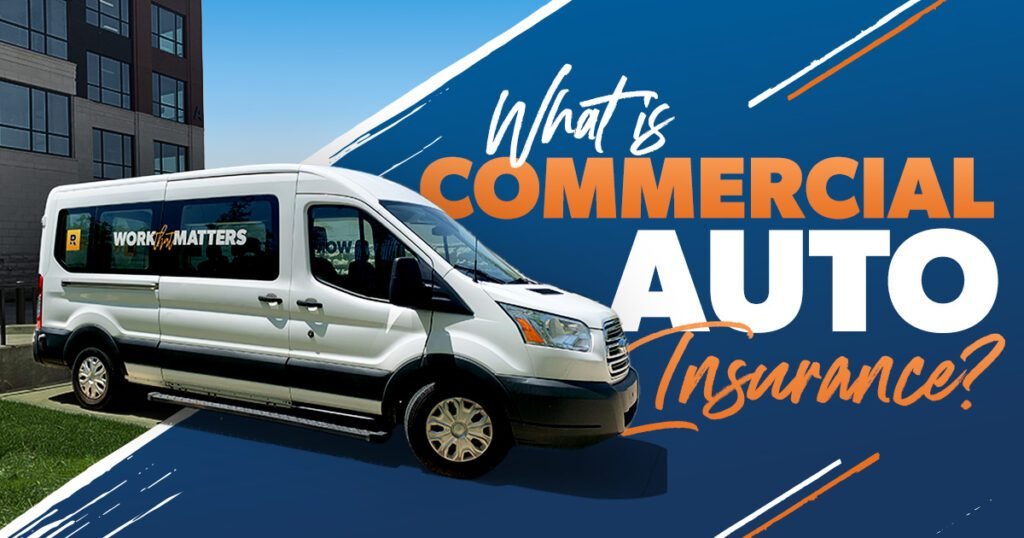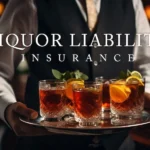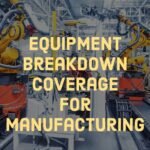Comprehensive Guide to Commercial Auto Insurance for Restaurants
When running a restaurant, managing various operational risks is crucial to maintaining a successful business. One often overlooked aspect of restaurant insurance is Commercial Auto Insurance, which is essential for restaurants that use vehicles for business purposes. This type of insurance protects your restaurant’s vehicles, drivers, and operations from a range of potential risks. This guide explores the importance of Commercial Auto Insurance for restaurants, the key coverage areas, and how to select the right policy for your needs.
What is Commercial Auto Insurance?
Commercial Auto Insurance provides coverage for vehicles used in the course of business operations. Unlike personal auto insurance, which covers vehicles used primarily for personal purposes, Commercial Auto Insurance is tailored to cover vehicles that are integral to your business operations. For restaurants, this can include delivery vehicles, catering vans, and even vehicles used for errands or transporting employees.
Key Coverage Areas
- Liability Coverage: This is a fundamental component of Commercial Auto Insurance. It covers the costs associated with bodily injury and property damage if one of your restaurant’s vehicles is involved in an accident. This includes legal defense costs, medical expenses for injured parties, and repair or replacement costs for damaged property.
- Bodily Injury Liability: Covers medical expenses, lost wages, and pain and suffering for individuals injured in an accident caused by your vehicle.
- Property Damage Liability: Covers the costs to repair or replace property damaged in an accident caused by your vehicle.
- Collision Coverage: This coverage pays for damages to your restaurant’s vehicles resulting from a collision, regardless of fault. Whether your vehicle hits another car, a stationary object, or is involved in a rollover, Collision Coverage helps cover repair or replacement costs.
- Comprehensive Coverage: Protects against non-collision-related damages to your vehicles. This includes damages from events such as theft, vandalism, natural disasters, fire, or falling objects. Comprehensive Coverage ensures that you are financially protected against a wide range of potential risks beyond just collisions.
- Uninsured/Underinsured Motorist Coverage: Provides protection if your vehicle is involved in an accident with a driver who does not have sufficient insurance to cover the damages. This coverage helps pay for medical expenses and vehicle repairs when the at-fault driver is uninsured or underinsured.
- Medical Payments Coverage: Also known as MedPay, this coverage helps pay for medical expenses incurred by you, your passengers, or your employees in the event of an accident, regardless of fault. It can cover hospital visits, ambulance fees, and other medical costs.
- Cargo Coverage: If your restaurant uses vehicles to transport food or other goods, Cargo Coverage provides protection against loss or damage to the items being transported. This is especially important for delivery and catering operations where the integrity of the transported goods is crucial.
- Rental Reimbursement Coverage: Offers financial assistance for renting a replacement vehicle if one of your restaurant’s vehicles is in the shop due to a covered event. This ensures that your business can continue operating smoothly even if a vehicle is temporarily out of commission.
- Hired and Non-Owned Auto Coverage: Covers vehicles not owned by your restaurant but used for business purposes. This includes rental cars or employees’ personal vehicles used for business tasks. It provides liability protection if an accident occurs while using these vehicles for work.
Why is Commercial Auto Insurance Important for Restaurants?
Restaurants that utilize vehicles in their operations face unique risks that make Commercial Auto Insurance essential. Here’s why this coverage is vital:
- Operational Continuity: Many restaurants rely on vehicles for deliveries, catering services, and other essential operations. If one of your vehicles is involved in an accident or is damaged, Commercial Auto Insurance helps ensure that you can continue operations with minimal disruption.
- Financial Protection: Accidents and vehicle damages can result in significant financial losses. Commercial Auto Insurance helps protect your restaurant’s finances by covering repair costs, medical expenses, and potential legal liabilities. Without this insurance, the costs associated with vehicle-related incidents could be substantial.
- Legal Compliance: In many jurisdictions, businesses are required to have Commercial Auto Insurance for vehicles used in business operations. Ensuring that you have the appropriate coverage helps you comply with local laws and regulations, avoiding fines and legal complications.
- Employee Safety: Your employees’ safety is a top priority. Commercial Auto Insurance helps cover medical expenses and legal liabilities if your employees are involved in an accident while using a company vehicle. This protection extends to both your drivers and passengers.
- Risk Management: Managing the risks associated with vehicle use is crucial for maintaining a successful restaurant operation. Commercial Auto Insurance provides a safety net against a range of potential risks, including accidents, theft, and damages, allowing you to focus on running your business effectively.
Choosing the Right Commercial Auto Insurance Policy
Selecting the right Commercial Auto Insurance policy involves several key considerations to ensure that your restaurant’s specific needs are met:
- Evaluate Your Vehicle Fleet: Assess the types of vehicles used in your restaurant’s operations, including delivery trucks, catering vans, and personal vehicles used for business purposes. Understanding your fleet’s composition helps determine the appropriate coverage limits and types.
- Determine Coverage Limits: Coverage limits refer to the maximum amount your insurer will pay for a claim. Ensure that your policy provides adequate limits based on the value of your vehicles, potential liability risks, and the size of your business. Higher limits may be necessary if you have multiple vehicles or high-value cargo.
- Understand Policy Exclusions: Review any exclusions or limitations in your policy. Common exclusions might include damages resulting from reckless driving or incidents involving personal use of business vehicles. Understanding these exclusions helps identify potential gaps in coverage and additional coverage needs.
- Consider Optional Coverages: Depending on your restaurant’s specific operations, you might need additional coverages such as Cargo Coverage or Hired and Non-Owned Auto Coverage. Evaluate your needs and consider adding these optional coverages to enhance your policy.
- Compare Policies: Different insurers offer varying levels of coverage, pricing, and policy features. Compare policies from multiple providers to find one that best suits your restaurant’s needs and budget. An insurance broker specializing in commercial auto insurance can assist with this process.
- Review Safety Measures: Implementing robust safety measures can reduce the risk of accidents and claims. Ensure that your drivers are trained, vehicles are well-maintained, and safety protocols are followed. Many insurers offer discounts for businesses with strong safety practices.
- Regularly Update Your Policy: As your restaurant’s operations change, such as acquiring new vehicles or expanding delivery services, update your Commercial Auto Insurance policy accordingly. Regular reviews ensure that your coverage remains adequate and relevant to your evolving business needs.
- Document Your Fleet: Keep detailed records of your vehicles, including their make, model, VIN, and usage. This documentation helps in accurately assessing coverage needs and streamlines the claims process if an incident occurs.
Case Studies and Real-Life Examples
Understanding how Commercial Auto Insurance can impact your restaurant can be clarified through real-life examples and case studies:
- Case Study 1: Delivery Accident: A restaurant with a fleet of delivery vehicles experienced a significant accident when one of its delivery trucks collided with another vehicle. The accident resulted in injuries to the other driver and damages to both vehicles. The restaurant’s Commercial Auto Insurance covered the medical expenses for the injured driver, repair costs for both vehicles, and legal fees, minimizing the financial impact on the restaurant.
- Case Study 2: Cargo Theft: A restaurant that offered catering services had a van stolen while it was parked overnight. The van contained valuable catering equipment and supplies. The restaurant’s Cargo Coverage under their Commercial Auto Insurance policy helped compensate for the loss of equipment and supplies, allowing the business to continue operations without major disruptions.
- Case Study 3: Non-Owned Vehicle Accident: An employee used their personal vehicle to pick up supplies for the restaurant and was involved in an accident. The restaurant’s Hired and Non-Owned Auto Coverage provided liability protection for the accident, covering legal costs and damages, even though the vehicle was not owned by the restaurant.
Conclusion
Commercial Auto Insurance is an essential aspect of restaurant insurance, providing protection for vehicles used in business operations. By understanding the key coverage areas, evaluating your restaurant’s specific needs, and selecting the right policy, you can safeguard your business against potential risks and financial losses related to vehicle use. Investing in comprehensive Commercial Auto Insurance ensures that your restaurant operates smoothly and remains protected, allowing you to focus on delivering exceptional service to your customers.



